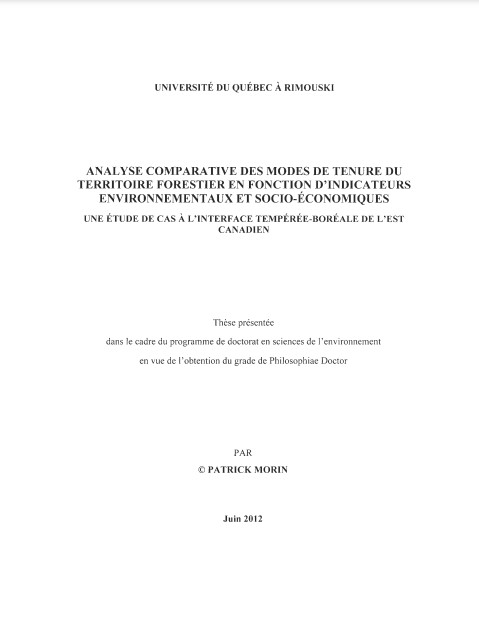Analyse comparative des modes de tenure du territoire forestier en fonction d'indicateurs environnementaux et socio-économiques: une étude de cas à l'interface tempérée-boréale de l'Est canadien
Bosque Modelo:
Bas-Saint-Laurent
Temática:
Desarrollo humano
Tipo de documento:
Tesis de postgrado
Resumen
Forests are increasingly disturbed by logging activities, while the population is
requesting a management of forest resources that is better balanced between environmental, social and economic values. Tenure modes can be divided into two main types, private and public. Historically, the forests around the globe were almost exclusively under public tenure. Today, 80 % of the world's forests are public, but an increasing portion (18 %) is under private tenure. This trend, in a context of multiplying examples of resource overexploitation, commands a reflection upon the potential effects of these changes in the types of management. This study compares and contrasts the public (un der timber supply and forest management agreement) and private (non-industrial owners) forest of the lower St. Lawrence region, which occupy an equal proportion of a single ecological region. The comparison is twofold, one portion being environmental and the other socio-economic. Our main hypothesis is that from a forest that originally was similar, the current state of the forest as weil as the nature and value of resources we draw from them differs between tenures, independently from the permanent physical conditions of the ecosystem. A simulation model was elaborated from the results of the first two folds
Información Bibliográfica
Autor:
Morin, P.
Año:
2012
País :
Canadá
Páginas:
-
Idioma:
Ingles
Palabras claves
forest, tenure, private, public, sustainable forest management, heterogeneity, institutional arrangements, modeling, tragedy of the commons





